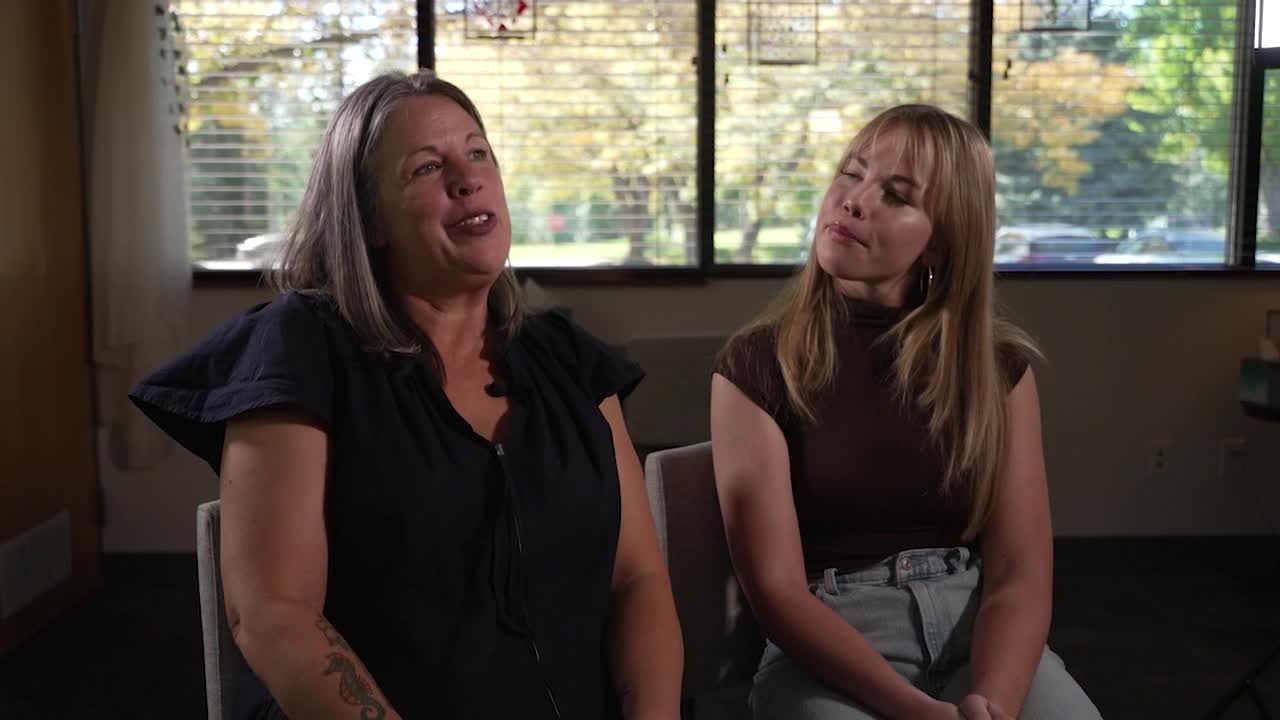FORT COLLINS, Colo. — Grief is a subject many of us prefer to avoid, but a Fort Collins nonprofit is opening up the conversation with a new podcast, aiming to lift some of the silence around loss.
“Resting Grief Face,” the debut podcast from 3Hopeful Hearts, premiered on a day filled with extra meaning for host Sarah Saltee — the day her son Gabe would have turned 30.
“This would be his 30th birthday, which is really, really hard to believe. It is a very significant day, and I just feel so grateful to be able to honor him in this way and share a little bit of him with everybody,” Saltee said.
Gabe Loughrey died in 2017 at age 21 after an accidental overdose, leaving his mother, Sarah, and his sister, Abi, stunned and searching for support.

The family turned to 3Hopeful Hearts, a Fort Collins-based nonprofit specializing in support for those who have lost a child. Through the organization, mother and daughter found comfort in connecting with others who understood the landscape of loss. Eventually, Sarah became the group’s executive director.
Saltee said the idea for the podcast was born out of a desire “to reach an audience that might not be as comfortable or familiar with grief as we are.”
The launch of “Resting Grief Face” was intentionally lighthearted — even as the subject matter remained heavy.
“This first episode was just a way to, like, introduce something kind of funny and silly, but also the heavy grief, or the heavy subject of grief,” Saltee said. Humor, she and Abi say, has been essential to their own journey.
“There is still laughter. You can be going through something just so awful, but there's still joy in the world, and joy and grief can coexist," Abi said. “For me, it's part of my grieving. I lost a 21-year-old brother, and if he were here with me, he'd be right there joking about the things we didn't want to go through.”
Both women stress that grieving is deeply personal, and while there’s “a lot of commonality in grief,” everyone walks a different path. Their advice: Acknowledge the loss, ask grieving people about their loved one, and know that support doesn’t have to come with perfect words.

“The first thing I would suggest is just acknowledge the grief. Just, you know, really say, ‘I'm so sorry for whatever it may be. You know, it's a loss of somebody. I'm so sorry that they're gone,’” Saltee advised. “Ask them about their person, because people love to talk about their loved ones who aren't here, and it takes the pressure off you to feel like you have to say the right thing.”
The podcast is part of a broader push from 3Hopeful Hearts to normalize conversations around grief, while reminding listeners that loss is not limited to death.
“We all grieve various things throughout our life,” Saltee said. “I think sometimes we don't know what to say or what to do, and it keeps us from doing anything, and we're just really trying to remove
that stigma so people get the support that they need and don't feel alienated.”
Sarah hopes those struggling will reach out. “You're not alone. This is the human condition, and we're all experiencing this at some point in our lives in some form or another. Reach out for help. People want to help — they really do. They just don't always know how.”
“Resting Grief Face” is available now, with new episodes every other week. You can find a link to the first episode on the podcast website.
If you are looking for grief support resources, you can reach out to 3Hopeful Hearts or find a list of support facilities on UCHealth's website.






